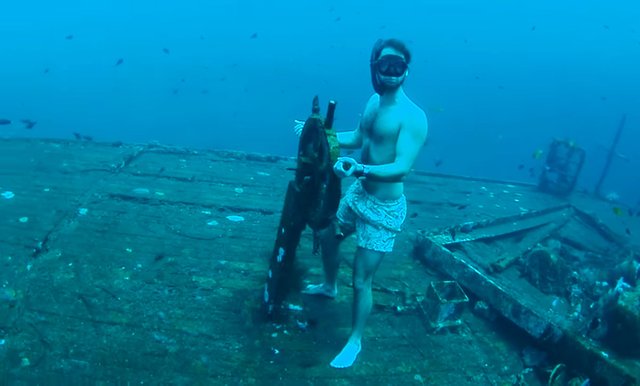FREE DIVE COMPETITIVELY
Have you ever looked at scuba equipment and thought, “This looks incredibly safe. What if instead of wearing all this gear though, I just…you know…didn’t?” Well, you’re not alone. There’s an entire sport devoted to people just like you.
GETTING STARTED
Find the nearest swimming pool, hop in, and hold your breath as long as you can. If you can make it more than sixty seconds, congratulations, you’re above average! Competitive freedivers

can hold theirs for more than ten minutes, but hey, it’s a start.
Before you start training, you’ll need to decide what aspect of the sport you’ll be competing in, as your training regimen will differ:
Static apnea: timed breath holding in a swimming pool.
Dynamic apnea: underwater swimming in a pool for distance; can be done with or without fins. There are six depth disciplines, which differ in the method of descent and ascent, of which “no limits” is the sexiest: You use any means of breath-holding to dive to depth using a weighted sled and return to the surface along a guideline with the help of an air-filled bag.
TRAINING
Fortunately, humans have the mammalian diving reflex. That means as soon as your face hits the water, you will start to experience a drop in heart rate; your blood vessels will shrink and fill up with plasma to prevent your lungs from collapsing; and blood is directed away from the limbs to the heart, lungs, and brain.
One training method is the apnea walk. You start by relaxing your body and taking a few deep breaths, followed by a one-minute breath-hold taken at rest. Then you walk as far as you can without taking a breath (top free divers can walk for over four hundred meters). This trains your muscles to operate under anaerobic conditions and to tolerate the buildup of carbon dioxide in the bloodstream.
Hyperventilating before a dive lowers the level of carbon dioxide in your lungs and bloodstream, which fools your body into thinking that it is less starved of oxygen than it really is. However, it doesn’t raise the amount of oxygen, so most free divers only take three or four oxygenating breaths before a dive.
Always train and dive with a friend. Diving alone is the main cause of serious accidents. If you blackout, you need a friend to drag you back to the surface and give you the kiss of life
Source: Forbidden Knowledge: 101 Things NOT Everyone Should Know How to Do